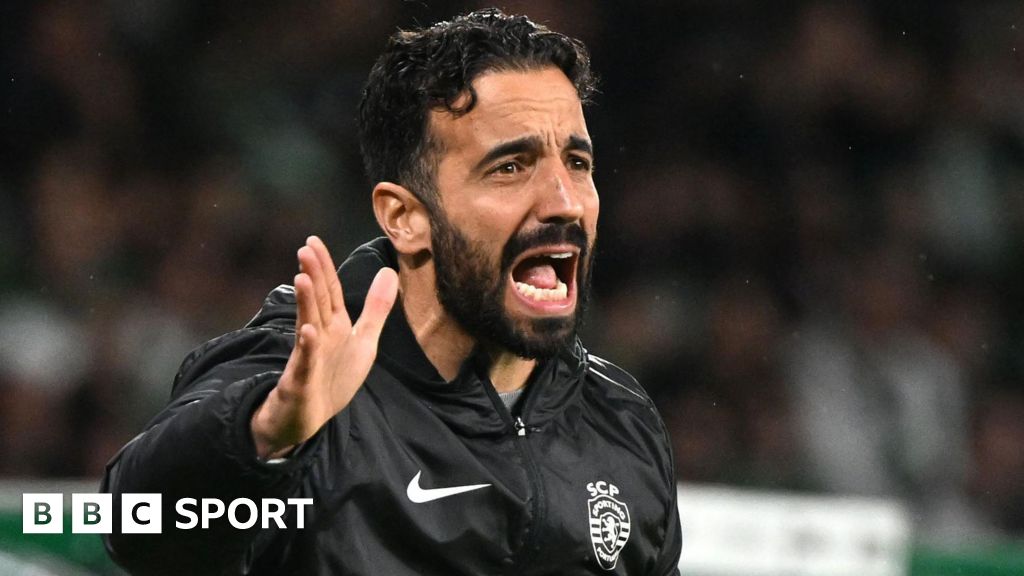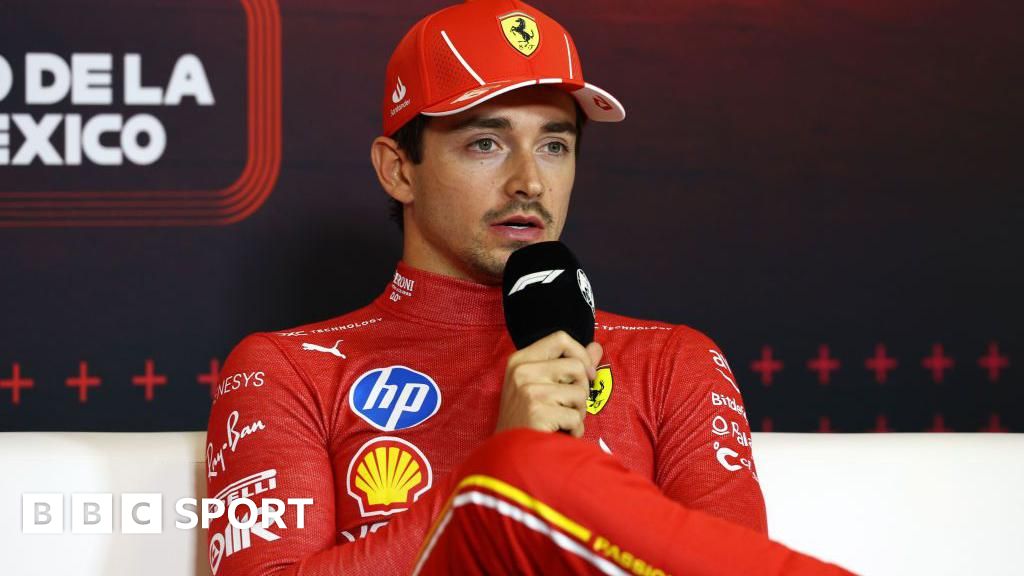ARTICLE AD BOX
Watch Linford on BBC iPlayer and BBC One from Thursday, 25 July at 20:30 BST
Ciaran Varley
BBC Sport Journalist
Linford Christie is one of Britain's most-decorated athletes, but his relationship with sport and the press has not always been easy.
With unprecedented access and never-before-seen archive, a 90-minute film for BBC One takes a deep dive into the former Olympic champion's complicated legacy.
"I've been told many times that I should know my place," Christie, 64, told BBC Sport in a recent interview. "I didn't know what my place was."
During a 17-year international career, Christie won more major championship medals (23), external than any other British male sprinter, and in 1993 became the first male 100m runner to simultaneously hold the Olympic, world, European and Commonwealth titles.
After retiring, he helped others to win Olympic medals - including Katharine Merry, who took 400m bronze at Sydney 2000, and Darren Campbell, who claimed silver in the 200m at the same Games.
Those successes came a year after Christie tested positive for anabolic steroid nandrolone and was banned for two years. He maintains his innocence.
Christie has also been subjected to racial discrimination and objectifying headlines about his genitalia.
Over the course of Kwabena Oppong's film, he confronts his past.
He ends the film on a defiant note, quoting poet and activist Maya Angelou by saying: "You may trod me in the very dirt, but still like dust I rise."
He feels 'as British as the Queen'
Image source, BBC/Story Films/Jon Nicholson
Image caption,Christie won the 100m world title in Stuttgart in 1993 by clocking 9.87 seconds - just 0.01secs outside Carl Lewis' world record
Christie moved to the UK from Jamaica aged seven to join his parents, who had emigrated to London as part of the Windrush generation.
During the film, he describes experiencing racism at school and from members of the public.
Christie also details incidents during his professional career when he feels he was the victim of racial discrimination.
After winning the 100m European Championship in 1986, for example, he recalls being reprimanded by a member of his own team for wrapping the union jack around himself on the podium.
He says he felt the implication was "it was not the done thing for a black person".
Christie also talks about the time he was arrested while training for the 1988 Olympics, when a police officer wrongly accused him of driving a stolen car.
The car in question was sponsored and had Christie's name on the side. He was paid damages after the charges were dropped., external
Despite the experiences, Christie remains patriotic, saying: "I'm as British as the Queen."
'The lunchbox thing followed me around for years'
At the World Championships in 1991, Christie set a new European record by clocking 9.92 seconds for the 100m - but still finished fourth.
A year later, aged 32, he became the oldest man to win the Olympic 100m title.
The day after his victory in Barcelona, much press attention focused on his figure-hugging running suit, with comments made about his genitalia. The Sun newspaper coined the phrase 'Linford's lunchbox'.
"It was the day after I won the blue-riband event," Christie told BBC Sport. "It's not a thing that I want to be known for."
Christie says "the lunchbox thing followed me around for years" and believes it meant some women felt it was OK to approach him and "grab" his genitalia.
During the film, he re-watches scenes from a 1995 episode of ITV's Sport in Question, during which he famously broke down while talking about his treatment by the press. His children also cry as they watch for the first time.
'They can't give me back what I've lost'
Image source, BBC/Story Films/Jon Nicholson
Image caption,Christie and Frankie Fredericks training in Australia, as shot by Jon Nicholson
Christie briefly came out of retirement in 1999 to race in Dortmund, Germany, in order to settle a bet with the athletes he was coaching.
He won the race - at the age of 38 - but afterwards tested positive for banned anabolic steroid nandrolone.
UK Athletics found Christie not guilty, but that decision was overturned by the International Amateur Athletic Federation (IAAF), which banned the former Olympic champion for two years.
Professor Ron Maughan was one of the UK Athletics anti-doping panellists who worked on Christie's case.
In the film, he explains the panel's role was "to prove guilt beyond reasonable doubt".
Christie's sample was about 100 times the threshold level.
"You think that's an awful lot," says Maughan, "but the amounts are so small, they would have absolutely no physiological effect, but they would trigger a doping test."
Nandrolone can be found in certain supplements, and from 1998-2000 there were a spate of athletes returning positive tests.
Former European 200m champion Dougie Walker, and Britain's former number one 400m hurdler Gary Cadogan also had two-year bans imposed after the IAAF overturned UK Athletics verdicts.
Referring to the inconsistency between UK Athletics and the IAAF, Christie told BBC Sport "you have your governing bodies - you have to allow them to make their decisions", adding: "UK Athletics exonerated me."
Christie was dropped from the BBC's coverage of Sydney 2000, external following his ban, and largely disappeared from screens afterwards.
"For two years, I didn't earn a penny and spent virtually all my savings trying to prove my innocence," says Christie.
He told BBC Sport if he was found innocent now, it would not make any difference.
"At the end of the day, they can't give me back what I've lost," he said. "They can't give me back the feelings I went through."

 3 months ago
22
3 months ago
22








 English (US)
English (US)